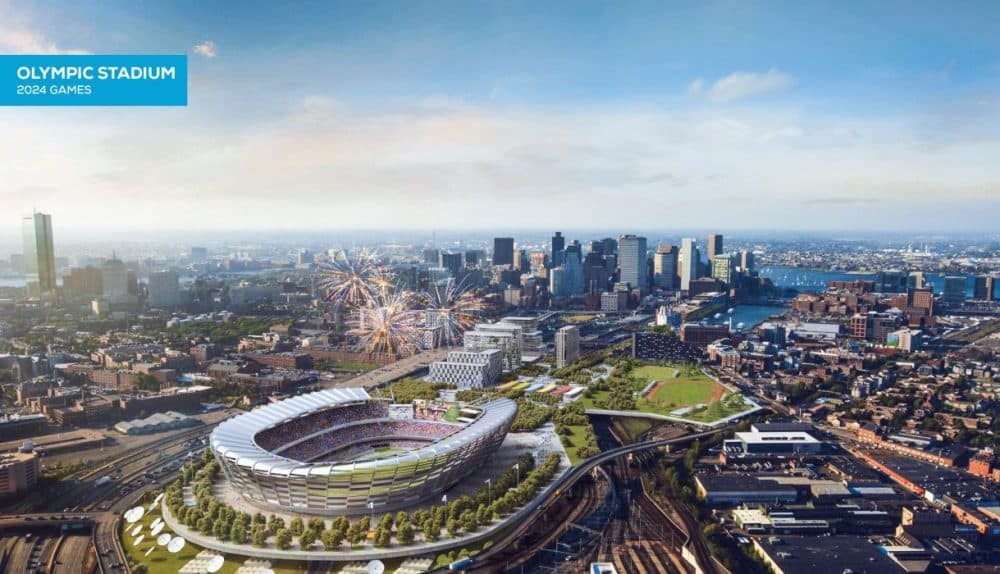Advertisement
Wistful For The Olympics That Wasn't

There are a lot of reasons to be relieved that the Olympics aren’t coming to Boston. For me, a big bonus will be the end (eventually) to the loud and circular arguments about whether it would be a boon or a disaster. I’m even happier that no more money will be spent selling and fighting the idea.
I have to agree that the bad probably would have outweighed the good — what with the construction mess, transportation disruption, cost overruns and, most of all, the fact that Boston 2024 would certainly have made the rich even richer and left the rest of us in the dust.
And, yet I must admit to feeling wistful about the Big No. Because the Olympics coulda-shoulda-mighta been a chance not only to show off the best of the city, but also to help create a vision of an updated, modern Boston. And not just in terms of fixing the MBTA.
it could have been a way to knit Boston’s disparate neighborhoods and constituencies together to build a 21st century city on a hill for everybody.
What follows is, I admit, far-fetched and starry eyed. But oh, the places we might have gone, if only …
If only the suits behind the bid had thought to cast a truly wide net for what they would doubtless (and tellingly) call “buy in;” it could have been a way to knit Boston’s disparate neighborhoods and constituencies together to build a 21st century city on a hill for everybody.
What if the big boys had started by putting out a call for open meetings with the city’s most passionate and creative people: techies, environmentalists, sports and fitness maniacs (bike lane fans to Fenway freaks), foodies, artists, educators, scholars, public transportation activists, clergy, public housing advocates, architects, public gardeners, etc. The people who are fueling and populating the city’s renaissance on so many fronts.
What if Boston 2024 had started by hosting a huge Ted-talk party? Twenty minutes for smart people to explain and dream about why and how bringing the Olympic games would be a great thing. Twenty minutes for an expert explanation of the lessons learned from the Big Dig overruns with a plan to prevent a repeat. Twenty minutes more to showcase the Big Dig’s best outcome: the Rose Kennedy Greenway, which is now a local amenity, tourist attraction and the front lawn for Boston’s new Public Market.
I would have loved to hear from architects, environmental engineers and designers with diagrams and models about how to build Olympic venues that would serve as models for a sustainable future. Could the Olympics be the starting line for citywide composting? Paris is about to install small wind turbines that look like Dr. Seuss trees; a Boston Olympics might have jump-started that kind of project and one for the planting of fruit trees.
If there had been universal input and access to a Big Dream, maybe we could have gotten to yes. And even if, in the end, the answer was no, we would have learned a lot.
We could forgo the inevitable contest to create a mascot. All Olympic mascots are, by definition, stupid. But with current city and state infusion of energy and funding for the arts, wouldn’t it be fun to get painters and poets into the process of planning the games?
All these lectures and meetings could have been convened in parks, grade school auditoriums, college greens throughout the city; all ideas — from technical to whimsical — posted on YouTube and as podcasts.
If there had been universal input and access to a Big Dream, maybe we could have gotten to yes. And even if, in the end, the answer was no, we would have learned a lot. We would have met and heard from our neighbors. We might have built consensus about where we want to go as a community. Gold medals all around.
